The new land laws promulgated by the central government for Jammu and Kashmir have triggered a new wave of insecurity, reports Umar Mukhtar
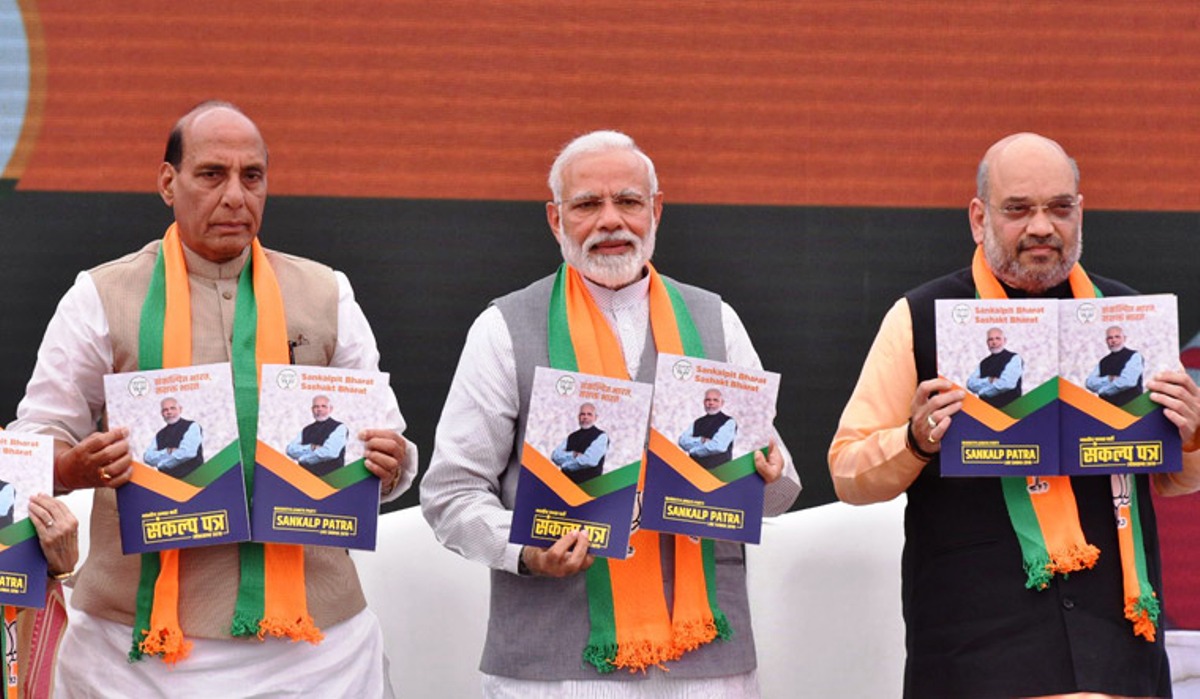
On October 26, the Government of India introduced new land laws in Jammu and Kashmir that have made land in the erstwhile state available for purchase by the outsiders.
Before the reading down of Article 370 and 35 A, the permanent residents of the Jammu and Kashmir had guaranteed land rights. Under Article 35A the Jammu and Kashmir legislature had the authority to define permanent residents of the erstwhile state. When the Jammu and Kashmir Constitution was adopted in 1956, it defined a permanent resident as someone who was a state subject on May 14, 1954, or who has been a resident of the state for 10 years, and has lawfully acquired immovable property. So under this clause, no outsider could own property in Jammu and Kashmir or get a job.
New land laws took Kashmir by surprise. People from Jammu and Kashmir termed the move as ‘anti-people’. However, Lieutenant Governor Manoj Sinha, claimed that agricultural lands were not up for sale to non-local buyers. The amendments, he said, are aimed at encouraging investment.
“I want to say this forcefully and with full responsibility that agricultural land has been kept reserved for farmers; no outsider will come on those lands,” Sinha told reporters. In Jammu and Kashmir, less than half of the land falls under agriculture with forest land as the major chunk of the available land.
The legal experts in Kashmir, however, say the new laws are against the interests of the domiciles of Jammu and Kashmir.
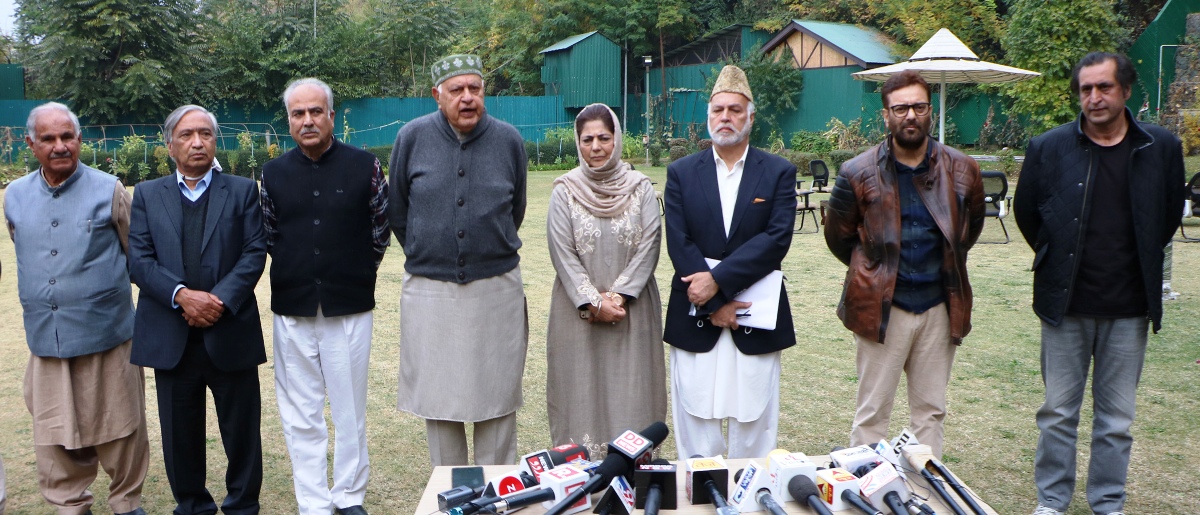
“Though the government has stated that the agricultural land is not for sale and transferrable, this is not true. It is transferrable, by the permission of the Deputy Commissioner,” said advocate Mubashir Mushtaq.
There are three lists in the seventh schedule of the constitution, union list, state list and concurrent land laws fall in the state list.
Before this was put in place, only the revenue minister of the state would initiate any change in the land laws for consideration of the legislative assembly. Now it is a bureaucrat who will have the powers to change the status of the land in Jammu and Kashmir.
In the current land laws act, amendments and insertions have been made to the Jammu and Kashmir Land Revenue Act, 1939. It states how land revenue records are to be maintained. In the Act, there are definitions of land, estate, rent, arrears, defaulters,’ cesses, settlement operations are to be held and also many other things.
Pertinent to mention, these land laws are applicable to the UT of Jammu and Kashmir only and not to Ladakh that was earlier part of the Jammu and Kashmir.

Binned Land Laws
Jammu and Kashmir Common Lands (Regulation) Act 1956 A.D
Jammu and Kashmir Consolidation Of Holding Act, 1962 A.D.
Jammu and Kashmir Land Improvement Scheme Act 1972 A.D.
Jammu and Kashmir Prevention Of Fragmentation Of Agricultural Jammu and Kashmir Holdings Act 1960 A.D.
Jammu and Kashmir Alienation Of Land Act, 1995
Jammu and Kashmir Right Of Prior Purchase. Act, Svt. 1993 (1936 A.D)
The Jammu and Kashmir Flood Plain Zones (Regulation And Development) Act, 2005 A.D.
The Jammu And Kashmir Underground Public Utilities (Acquisition Of Rights Of User In Land) Act, 2014
Jammu and Kashmir Tenancy (Stay Of Ejectment Proceedings) Act 1966 A.D
The Jammu And Kashmir Utilization Of Lands Act
Jammu and Kashmir Big Landed Estates Abolition Act 1950
Jammu and Kashmir Prohibition of Conversion of Land and Alienation of Orchards Act 1975 A.D.
The Changes
Prior to new land laws, there were four major land laws in Jammu and Kashmir: Jammu and Kashmir Alienation of Land Act, 1938; the Big Landed Estates Abolition Act, 1950; the Jammu and Kashmir Land Grants Act, 1960; and the Jammu and Kashmir Agrarian Reforms Act, 1976.
The first two laws have been abolished. In the other two, the “permanent resident” clause has been deleted from sections regulating the lease and transfer of land.
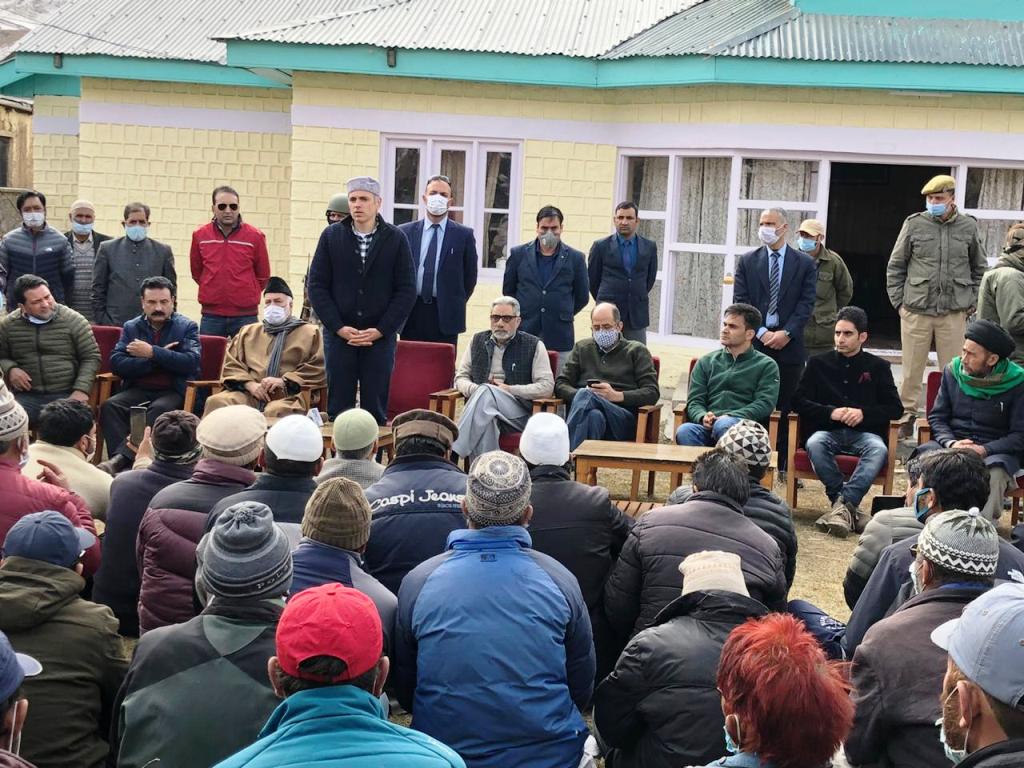
Big Land Estate Abolition Act, 1950 was a key law in ending the landlordism in Jammu and Kashmir and paved the way for rural upliftment then. It was part of the land to the tiller intervention that made Jammu and Kashmir a distinct place in the entire sub-continent.
Mushtaq says the new land laws will create a situation where a big fish can devour the small one. “Absolutely big corporates would prey on the small landowners. We have peasantry rights; peasants have a very small portion of land. So, it will affect the poor class. Landholdings will change now,” he said. “With the abolition of these protections, our economy is now vulnerable. Corporates would come and grab the lands of poor peasants.”
JKIDC
Another provision in the development Act enables the creation of the Jammu and Kashmir Industrial Development Corporation. According to the government, this is to help in “the rapid and orderly establishment, and organisation of industries in industrial areas and industrial estates” and setting up of “commercial centres” related to these industries.
“It will work basically on the might is the right order. The corporations will take large shares of industrial areas. They can then give those areas to their own people of choice,” said Mushtaq.
Mushtaq continued that the laws have been made and amended in such a way that the government has to keep the land available to the corporations. The corporations will be powerful and will have a say to negotiate the terms and conditions. “It will create such conditions where the local small businessmen will be nothing more than the clerks,” Mushtaq explained.
Modified Land Laws
Kashmir Prohibition of Conversion of Land and Alienation of Agrarian Reforms Act, 1976
Kashmir Prohibition of Conversion of Land and Alienation of Land Revenue Act, Svt 1996 (1939 AD)
Kashmir Prohibition of Conversion of Land and Alienation of Lands Grants Act, 1960 AD
Kashmir Prohibition of Conversion of Land and Alienation of Development Act 1970
Many of these changes have been pushed through under The Jammu and Kashmir Development Act of 1970. One amendment ensures that “development zones” notified by the government will not be subject to any existing land laws that require permission to change land use. The development authority will regulate land use according to the needs of the zonal plan.
Earlier, the development authorities could acquire land under the former state’s Land Acquisition Act, 1990, which stipulated that no land could be allotted or leased out for residential purposes to anyone who was not a permanent resident. The land will now be acquired under the Central law, which has no such restrictions.

One more provision in the development Act enables the creation of strategic areas. It empowers the government to declare any area in J&K as ‘strategic’ and intended for the direct operational and training requirement of the armed forces at the behest of an army officer of or above the rank of a corps commander.
“This is a provision that will have costs for the people. Suppose on request of the army a place is designated as a strategic area, what will happen to the immovable properties, agriculture and other things,” said Mushtaq.
Another provision in the development Act ensures that the low-cost housing that was earlier available to economically weaker sections and low-income groups of the permanent residents of the Jammu and Kashmir is now open to all people across India.
Pertinent to mention here that the Union Territory government recently announced a new housing policy under which it would build one lakh dwelling units over the next five years. It aims at “promoting public-private-partnerships for affordable housing and slum rehabilitation projects”. It also aims to fast track approvals for economically weaker sections and low-income groups.
The Development Act makes a corporation that would be literally a state in itself. Apart from “securing and assisting in the rapid and orderly establishment, and organization of industries in industrial areas and industrial estates”, it can acquire and hold “property, both movable and immovable” and will “lease, sell, exchange or otherwise, transfer any property held by it”; provided amenities and common facilities in industrial estates, commercial centres and industrial areas; “can make available buildings on hire or sale to industrialists or persons intending to start industrial undertakings or commercial establishments or both; can construct buildings for the housing of the employees of such industries or commercial establishments; allot factory sheds or such buildings or parts of buildings, including residential tenements to suitable persons in the industrial estates established or the industrial areas developed by the Corporation; allot shops and other buildings to suitable persons in commercial centres established by the Corporation, and can modify or rescind such allotments, including the right and power to evict the allottees concerned on breach of any of the terms or conditions of their allotment.”

The home ministry also extended three Central laws to Jammu and Kashmir, including the Real Estate (Regulation and Development) Act, 2016. Under this law, a real estate regulatory authority manages the sale of plots, apartments and buildings “to protect the interests of consumers in the real estate sector.”
With a Central law in place, buyers and property developers no longer need to be permanent residents of Jammu and Kashmir.
Another amendment in the Agrarian Reforms Act, 1976, paves way for contract farming. “Now any person from any state can approach the bank and can have loans on mortgages, that means corporates can mortgage our lands now against a huge sum of money,” said Mushtaq.
Reactions
Apart from the amendments, there are some other land Acts that were repealed as a whole. These include the Jammu and Kashmir Alienation of land Act, The Jammu and Kashmir Big Landed Estates Abolition Act, The Jammu and Kashmir Common Lands (Regulation) Act, 156 and The Jammu and Kashmir Consolidation of Holdings Act, 1962.
Apart from law knowing people, people across the ideological divide spoke against it.
The mainstream leaders issued statements and made people aware of the move. People’s Alliance for Gupkar Declaration (PAGD), an amalgam of seven mainstream parties in Jammu and Kashmir, termed the new order a huge betrayal. In a statement issued by Lone, the PAGD spokesman it said the decision was a massive assault on the rights of the people of Jammu, Kashmir and Ladakh and grossly unconstitutional.
“The repeal of Big Estates Abolition Act – first-ever agrarian reform in the subcontinent, is an insult to the sacrifices of thousands of freedom fighters and farmers who fought against an autocratic and oppressive rule and a crude attempt to rewrite history,” the alliance said in its statement. “The order made in exercise of powers under the Reorganisation Act, 2019, it is stated, is yet another brazen violation of the principle of constitutional proprietary of fundamental importance to a constitutional democracy.”
“The unconstitutional measure is clearly designed as an attempt to pre-empt the outcome of the challenge before the Supreme Court. The assault on exclusive property rights apart, changes in urban development laws and creation of Security Zones is bound to prejudicially affect the environment and ecosystem in environmentally fragile regions of Jammu, Kashmir and Ladakh in utter disregard of grave environmental concerns.”
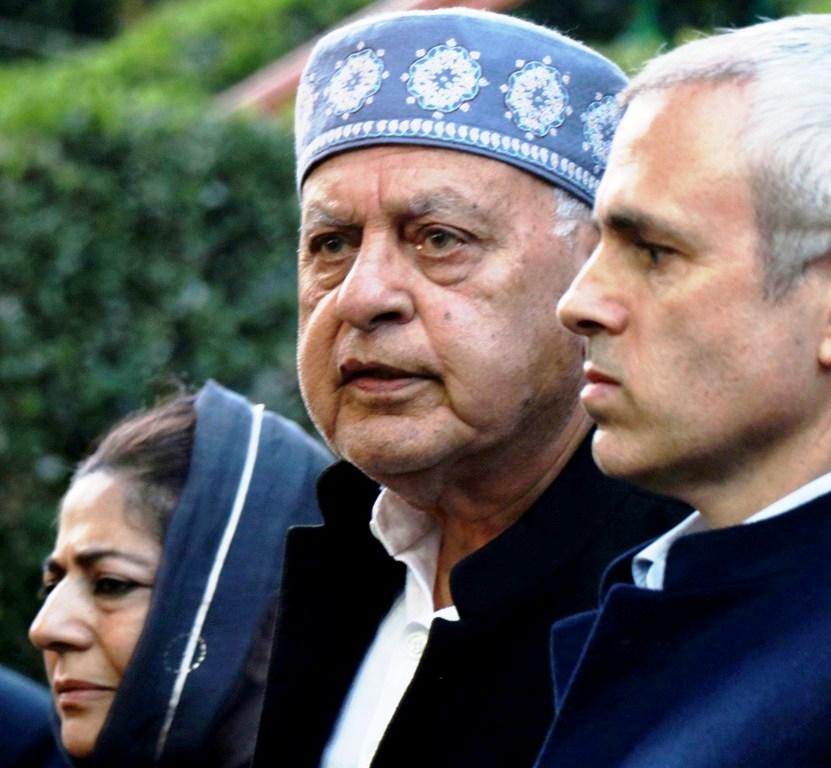
Former Jammu and Kashmir Chief Minister Omar Abdullah also criticized the amendments. “Unacceptable amendments to the land ownership laws of Jammu and Kashmir,” he tweeted. “Even the tokenism of domicile has been done away with when purchasing non-agricultural land and transfer of agricultural land has been made easier. J&K is now up for sale and the poorer small landholding owners will suffer,” he said.
Also, Peoples Democratic Party President Mehbooba Mufti called the move a “nefarious” design by the Centre to “dis-empower and disenfranchise” the people of the Union territory. “After failing on all fronts to provide roti and rozgar [food and employment] to people, BJP is creating such laws to whet the appetite of a gullible electorate,” she said in a tweet. “Such brazen measures reinforce the need of people of all three provinces of J&K to fight unitedly.”
NC and PDP, the two major parties have started mobilising the people against the intervention. There were a couple of protests in Jammu though, in Srinagar, the administration did not permit a protest and sealed the office of the PDP for the time being.
Hurriyat Conference that was in hibernation since August 5, 2019, also witnessed a sort of revival. For the first time, the separatist alliance gave a shutdown call against the land reforms. Though no newspaper in Kashmir carried it, the shutdown took place, apparently because of the word of mouth.
“People of J&K are not some dumb driven cattle who will yield to these imperial laws,” the Hurriyat statement issued by Mirwaiz was quoted saying. “People have proved by the strength of their unfailing will and their immense sacrifices, that they are not dead but alive and determined nation who will not withstand such assaults upon them and their motherland.”
What is seriously being talked about in the so-called mainstream camp is that why the BJP government is depriving Jammu and Kashmir of its rights over its land when a number of states across India have constitutional guarantees over its identity and land.
Under Article 371 or Articles 371A-J of the Constitution of India, a number of states and territories have express protections over their land. Almost the same protections were enshrined in Article 35A that was repealed on August 5 when the BJP government binned the already-hollowed special status of Jammu and Kashmir. No outsiders can purchase land in Himachal Pradesh. In Himachal, non-Himachal women married to Himachal residents can acquire property, on the same system that existed in Jammu and Kashmir till the right-wingers got it stayed through the court citing discrimination. While Jammu and Kashmir system was binned, it is still in vogue in Himachal Pradesh.
The land is protected for its residents in Sikkim under Article 371F of the Constitution that also protects its pre-1947 land laws. Nagaland is protected under Article 371A of the Constitution that prevents Lok Sabha from legislating on this state’s ownership and transfer of land laws.
Under the Sixth Schedule Regions comprising Assam, Meghalaya, Tripura, Mizoram and Darjeeling (West Bengal), the land cannot be acquired by non-locals. In case of Mizoram, it is already protected under Article 371G that envisages rights to Mizoram assembly on the ownership and transfer of land in non-tribal areas of the state. Though Arunachal Pradesh lacks any special constitutional protection to its land, the central government has avoided any intervention in the state’s longstanding customary rules on ownership of land. Arunachal gave its residents rights over their land possessions only in 2018.
Almost a similar situation exists in the tribal areas in Jharkhand, Odisha, Andhra Pradesh, Telangana, Madhya Pradesh and Chhattisgarh where customary traditions and laws prohibit the sale of tribal land to non-tribals, regardless of the fact whether the potential buyers belong to the same state or are outsiders. This is the key factor where the leaders in Leh are seeking an extension of the Sixth Schedule as it protects their land and culture.
Domicile Laws
Earlier this year, the new domicile law had opened up Kashmir for settlement by outsiders. The laws were issued in similar circumstances, without taking Jammu and Kashmir’s public and political opinion on board. But with Jammu and Kashmir being under the centre’s direct rule, New Delhi feels no need to engage in any public or political consultation before passing any law. But this has only further deepened a sense of political disempowerment among people, more so, when there is no political or civil society leader in Kashmir in a position to stick his neck out. Though PAGD is now stepping more and more into the limelight, the space for its activities remains considerably restricted.
However, considering the far-reaching the fallout of the new land laws on the demographic landscape, the situation in Jammu and Kashmir has been plunged into deep uncertainty. The move has already eroded any shred of legitimacy that Delhi blessed new Jammu and Kashmir politics might have enjoyed. The parties like Apni Party have struggled to formulate a coherent response to it, with its chief Altaf Bukhari saying that his outfit will fight for full rights for Jammu and Kashmir domiciles.
The laws have also dented the credibility of the established mainstream politicians who are now blamed by a section of society for bringing this upon the region. However, there has been no visible expression of the public anger against the Centre’s move. Going by the public sentiment in Jammu and Kashmir, many Kashmiri observers want New Delhi to review the new land laws as a confidence-building measure. This, it is argued, would go a long way to address the current alienation.
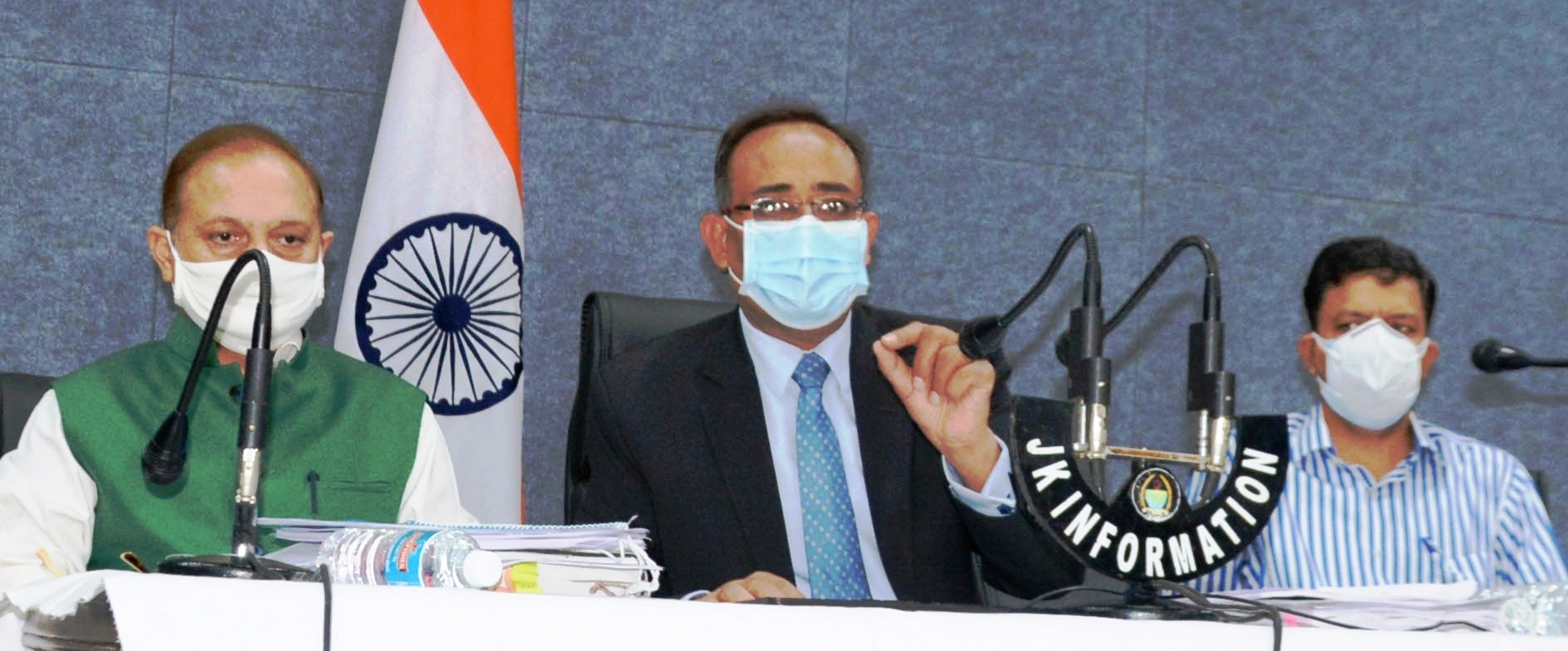
Post Script
Admitting that the less than 10 per cent of the land in Jammu and Kashmir could change hands, Rohit Kansal, senior IAS officer who is the spokesman of the Jammu and Kashmir administration, said on November 2, 2020, that certain archaic laws on the statute books were repealed changed. He termed the 11 repealed laws as “regressive, intrinsically contradictory, outdated and beset with ambiguities, contradictions and redundancies” and asserted they were replaced by “modern, progressive and people-friendly” provisions.
Kansal said different laws were defining family differently. While Big Landed Estates Abolition Act had put a ceiling of 182 kanals, the Agrarian Reforms act, 1976 superseded it by 100 kanal ceiling. “The Prohibition of Conversion of Land and Alienation of Orchards Act, 1975 not only prohibited alienation of orchard lands; it surprisingly restricted creation of new orchards too,” he said. “Similarly, the old Agrarian Reforms Act prohibited the selling of land distributed to tillers even after 44 years. The Right of Prior Purchase Act severely constrained an owner’s right to dispose off his own property.”
Asserting that the new laws drafted on the pattern of Uttrakhand and HP prevents any takeover of the agriculture land to non-locals and thus more than 90 per cent of land is protected. Four existing laws have been modified, he said.
Response
A day later, the People’s Alliance on Gupkar Declaration (PAGD) termed the statements by the official spokesman as “bundle of lies”. It termed the October 26, order by MHA as “a bizarre attempt to, distort facts, weave lies and mislead people”.
(Note: This report that was the cover story of Issue 31, Volume 12, was improved with more additional details, two days after the print edition went to the market.)















